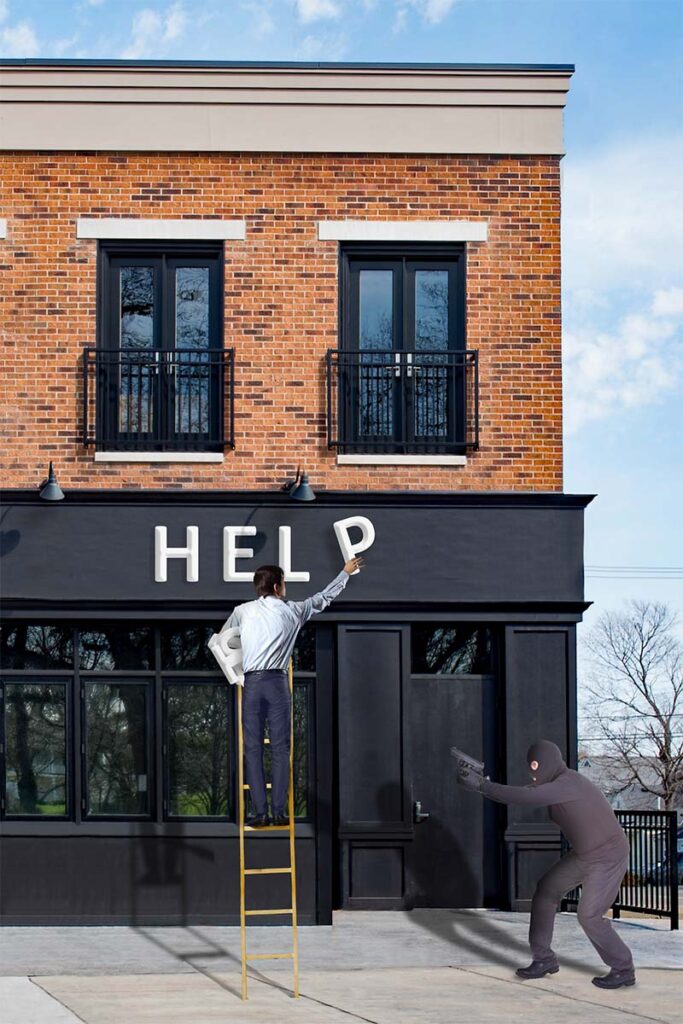Every Memorial Day, in my hometown of Farmingdale, New York, the whole community turned out for a parade on Main Street. When I think about it now, the idea of a parade seems as absurd as a fashion show — an event where people gather to watch other people walk. But when I was a kid, it was a highlight of my year. My family would get there early to get good seats (a “seat,” in this context, referring to a place to sit uncomfortably on the curb) and wait impatiently for something to happen. Eventually a police car would roll slowly down the street with its lights flashing, and the crowd would let out a cheer.
Trailing the police car would be a succession of applause-inducing sights: proud police and military veterans marching smartly in step, Girl and Boy Scout troops who hadn’t yet learned to march in step, troopers on horseback, freshly waxed fire trucks, and local politicians waving from the back seats of balloon-covered convertibles. All of these were punctuated by marching bands from local schools, led by confident-looking girls twirling flags or batons. (For some reason, the bands always seemed to play anywhere other than where I was sitting. As soon as they reached my field of view, they lapsed into marking time with snare drums — but even the snap of the snares was thrilling.) Most of the kids in the audience, and many of the adults as well, waved miniature American flags on wooden sticks — this being a time when such a thing could be done without irony by people of all political persuasions.
I remember only one year when I had less-than-total interest in the parade. The local news — conveyed to me only through adults’ gossip — was that one of the stores on Main Street had recently been robbed. For me, that news held a sort of dangerous excitement: A robbery — like the ones I would see all the time on the Superman TV show — but for real, right here in Farmingdale! While the parade filed by, I visually combed the street, trying to figure out which of the stores had been the victim. I don’t know what gave me the idea that I’d be able to identify a robbed store simply by its appearance, but there had to be something different about it, didn’t there?
Finally, in the distance, I spotted a store — well, actually, a bar. It looked pretty normal, except that at the top of the storefront were large, white, three-dimensional letters that spelled “ROB ROY.” I found the orthography questionable, but it occurred to me that if I were a traumatized store owner, I too might pay less-than-perfect attention to the spelling of “ROBBERY.” The rest was mysterious, though: At what point had the store owner put up those letters? During the robbery, to summon the police; or after the robbery, to let the rest of the community know? And how did the bar happen to have those particular huge sign letters on hand? Did they have a whole alphabet stored in the basement? Did every store have them, just in case? I regret to tell you, anticlimactically, that I never found out the answers to those questions.
The ideal parade — the one I would have given anything to see in person — was the Macy’s Thanksgiving Day Parade. Our Farmingdale parades were fine, but they didn’t have elaborate floats, giant balloons, and celebrities like that parade I saw on TV. New York City was just an hour-long train ride away, and I begged my parents every Thanksgiving to take me there. They always responded that it would be too hectic, too difficult, and not worth making the trip.
Finally, one year, my wearied father beckoned me to the car and told me we were going to see the Macy’s parade. Confusingly, the place he drove to was not the train station, but a shopping-center parking lot in some unknown part of Long Island. Adjoining the parking lot was an empty, narrow road lined with a few straggling spectators. I was perplexed.
“This can’t be right,” I said. “The Macy’s parade is in New York.”
“After they finish marching in the city, they come here,” he said.
“All of it? The balloons and everything?”
My father nodded. I wanted to believe him, but it seemed impossible.
“The road is so narrow,” I said. “They’d never be able to fit the parade here.”
He told me to be patient. Finally, a parade did come. Needless to say, it was not the Macy’s Thanksgiving Day Parade; it was some local parade, complete with the usual fire trucks and high school marching bands.
I have no idea what my father was thinking. Was he confused, and really did believe that this was an additional stop for the Macy’s parade? Did he know it wasn’t, but think I’d be fooled? Was he just trying to get me out of the house for a while, to give my mother some peace?
Whatever his intention was, it worked. I never again begged to be taken to the Macy’s parade. In later years, my father claimed not to remember the incident. So unlike the letters over the Farmingdale bar, which eventually made sense to me as an adult, the details of this episode remain mysterious. I still would like to see the Macy’s parade someday.

Recent Comments